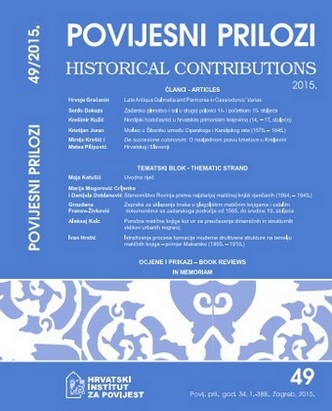
We kindly inform you that, as long as the subject affiliation of our 300.000+ articles is in progress, you might get unsufficient or no results on your third level or second level search. In this case, please broaden your search criteria.

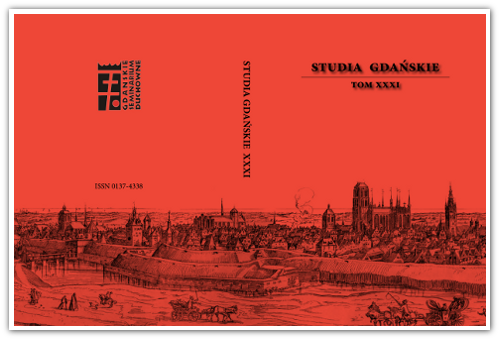
W Królestwie Polskim na przełomie XIX i XX w. nastąpił wzrost patologii społecznych. Zasadniczą rolę w walce z nimi odgrywały działania różnych grup społeczeństwa. Towarzystwa dobroczynne zajmowały się zakładaniem placówek opiekuńczo-wychowawczych dla starców, chorych, dzieci z ubogich rodzin i sierot. Ważnym obszarem działań była walka z alkoholizmem i prostytucją, w tym zapobieganie tym patologiom wśród młodzieży. Duża część działań w tym zakresie była prowadzona pod auspicjami Kościoła katolickiego i innych kościołów chrześcijańskich; w dziedzinie tej zwiększała się także aktywność inteligencji. Działania te były formą realizacji haseł solidaryzmu społecznego.
More...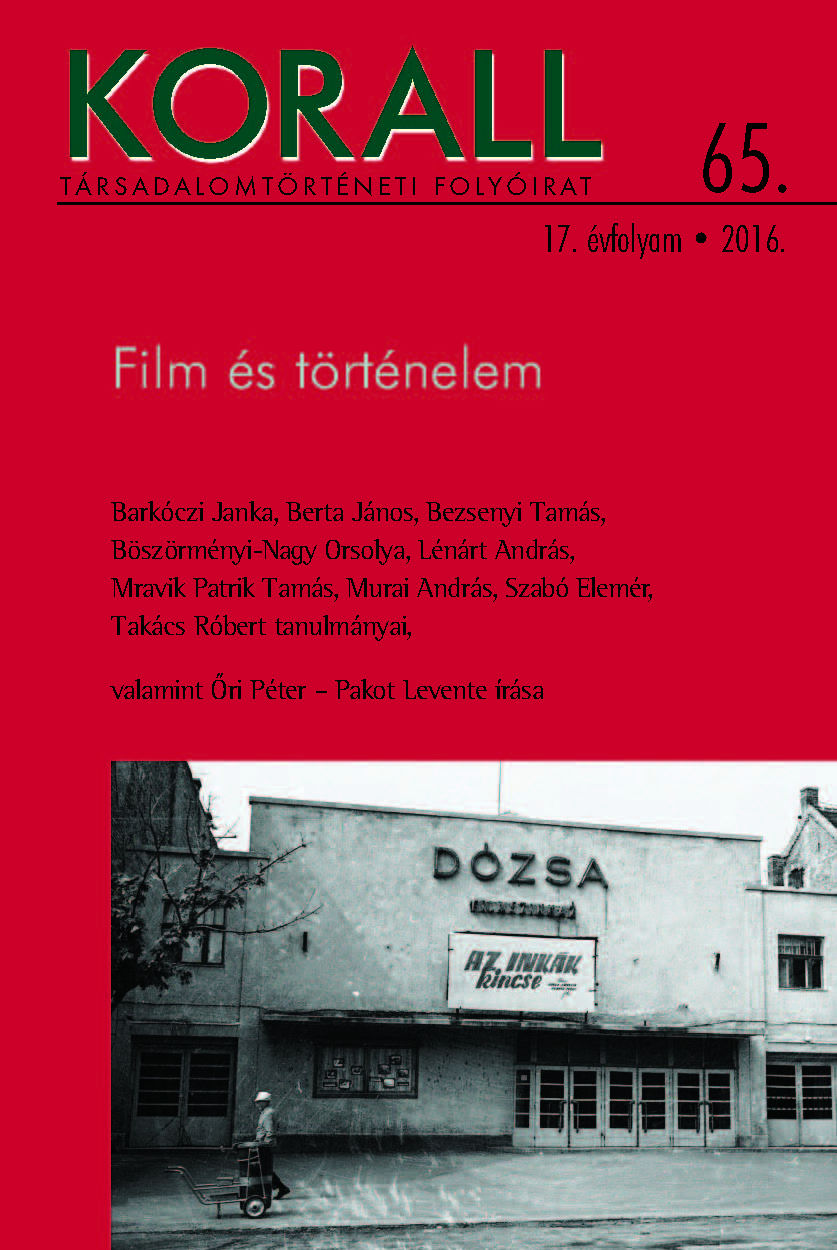
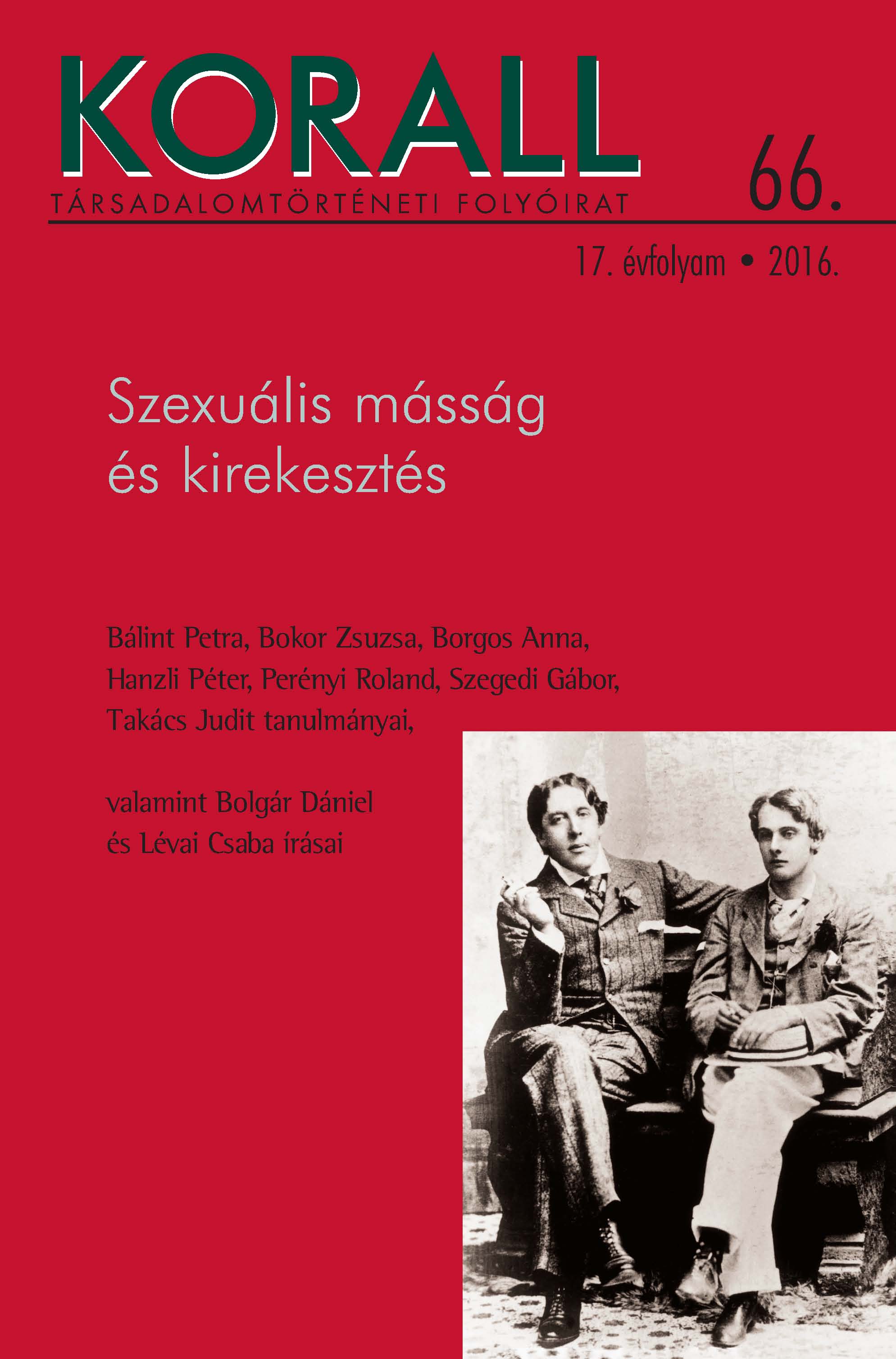
Stephen Nissenbaum’s famous Salem Possessed: The Social Origins of Witchcraft is not interpretable in its entirety without contextualising it in the period of American history and the state of historiography at the time of its conception. Lévai suggests that the genesis of the book can be interpreted in the context of four major approaches: microhistory, anthropology, psychohistory, and American history. Establishing that the original intent of the authors cannot be fully grasped without the latter, Lévai first interprets the book in the context of historical events in the 1960s and 1970s and then in that of the state of the American historical profession in the same period. Finally he proceeds to investigate the book’s role in the debate about the historical mission of the United States. Lévai undergirds his inquiry with the systematic analysis of the subcontexts and discourses that constitute his interpretative framework.
More...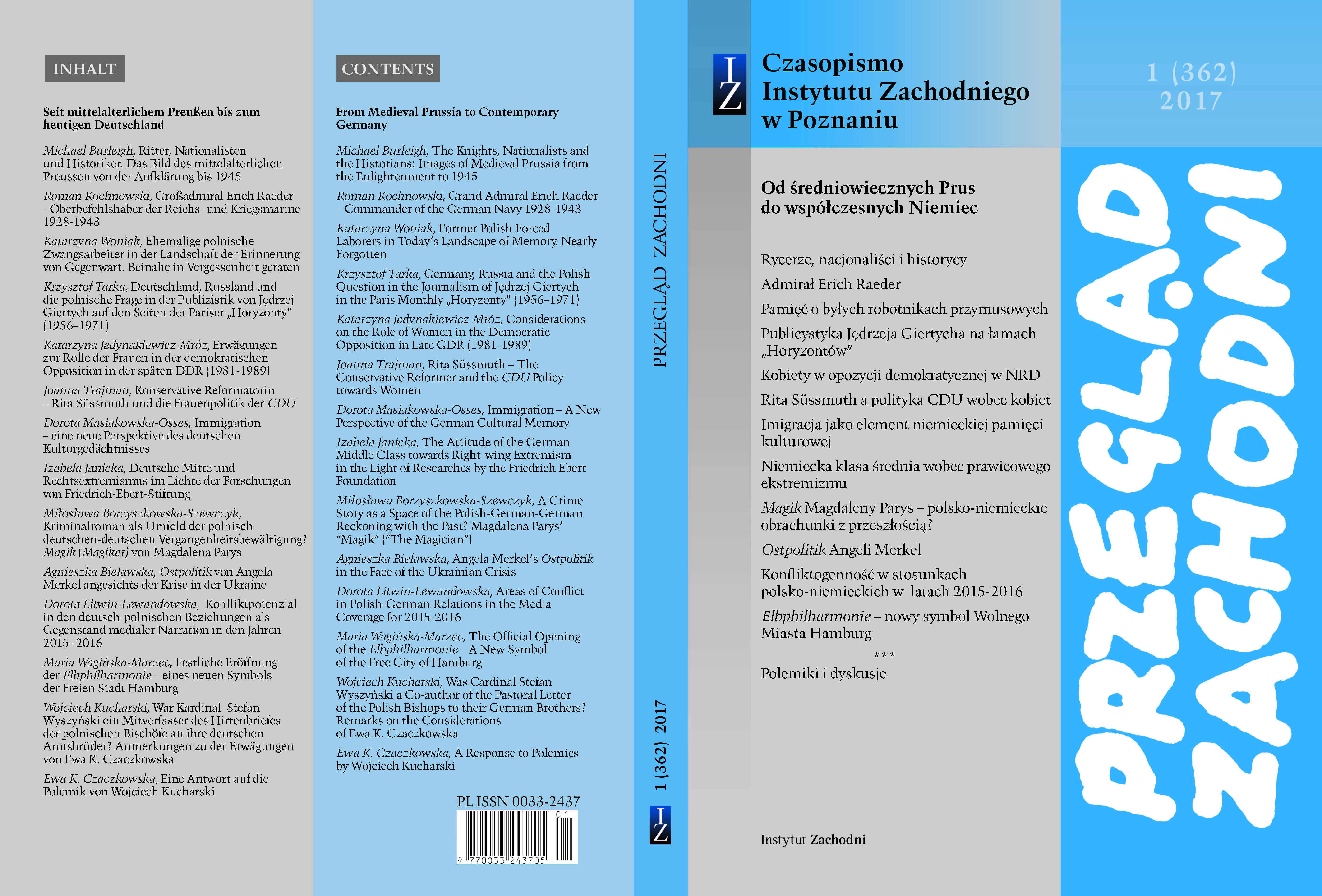
Contemporary Federal Republic of Germany defines itself as an immigrant country, and the statement fully corresponds with the actual situation. As a result of a mass inflow of foreigners, which began in 1950s, one out of every five German citizens can tell his/her own or family history of immigration. These facts serve as a basis for the question concerning the extent to which immigration that turned the FRG into a multicultural country, has become a part of the German collective memory. While referring to the concept of cultural memory by Jan and Aleida Assmann, the author presents and analyzes modern ways of preserving the immigrant past as well as expressing remembrance about it in the public sphere (jubilees, exhibitions, and monographs on culture). The process of including migration in the national history is highly dynamic, with its initiators being most often the descendants of immigrants who demand greater pluralism within Germany’s cultural memory.
More...
Recunoscându-le existenţa, homo ludens trăieşte un sentiment de alienare în faţa rezultatelor unui progres tehnologic fără precedent; confruntat cu imagini prezentate într-o succesiune rapidă, el nu întelege nici contextul, nici conexiunile; rezultatul este că toate ideile îi par la fel de bune. Astfel, semnul distinctive al postmodernului devine non-problematizarea, manifestată prin complicitate la consumism şi lipsa accentelor critice. Fiinţa postmodernă înregistrează totul, dar nu crede în (aproape) nimic, pentru că a devenit ea însăşi un ecran. În condiţiile acestea, cine poate cere unui ecran să creadă ceea ce redă?
More...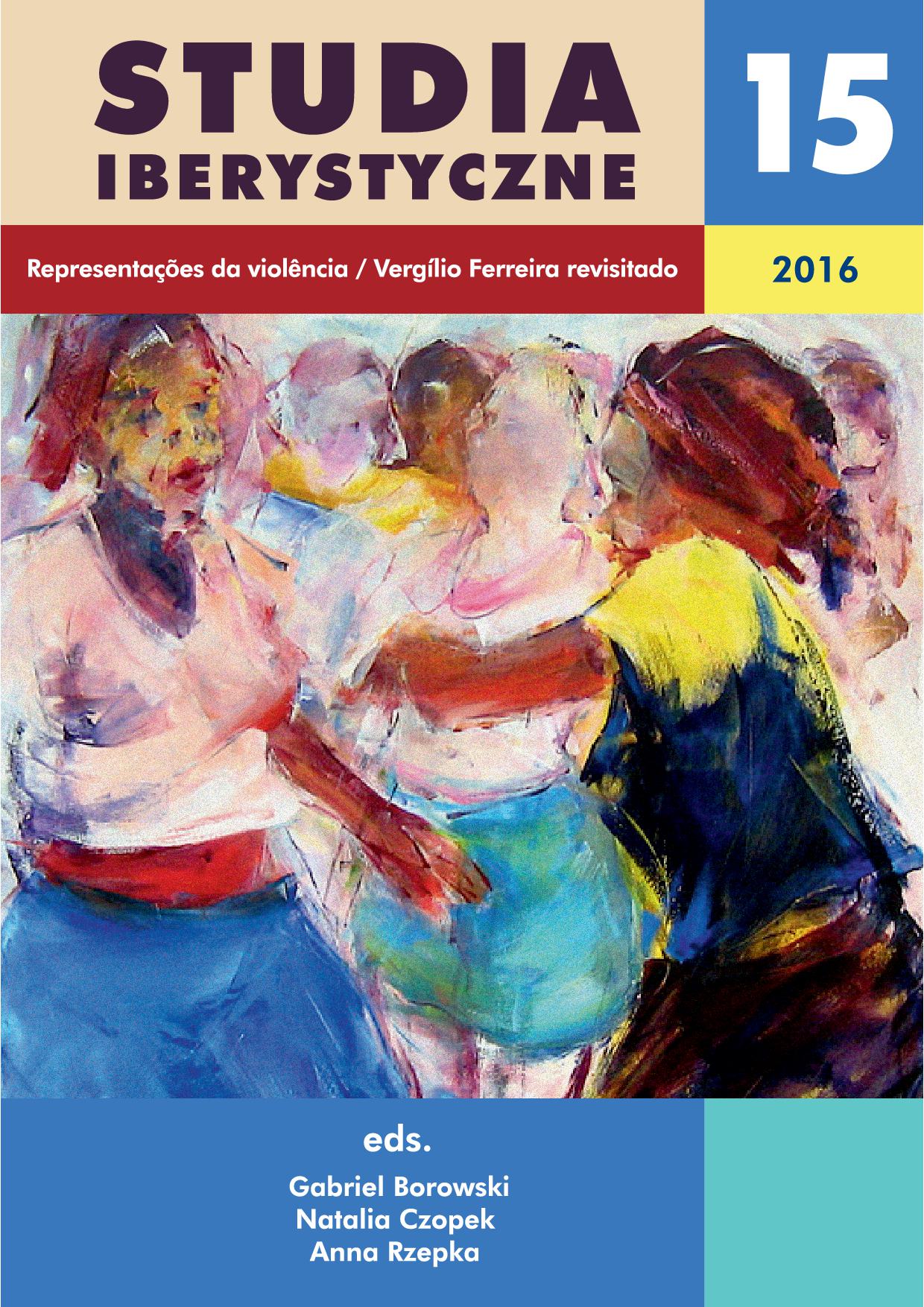
This paper presents a discussion about the way the theme of violence is represented in the poetry attributed to Alvarenga Peixoto, in order to demonstrate its coherency and cohesion in relation to literate and political assumptions of the late 18th century. During the discussion, his famous Ode to Marquis of Pombal will be analyzed and related to other four poems in wich this theme is recurrent.
More...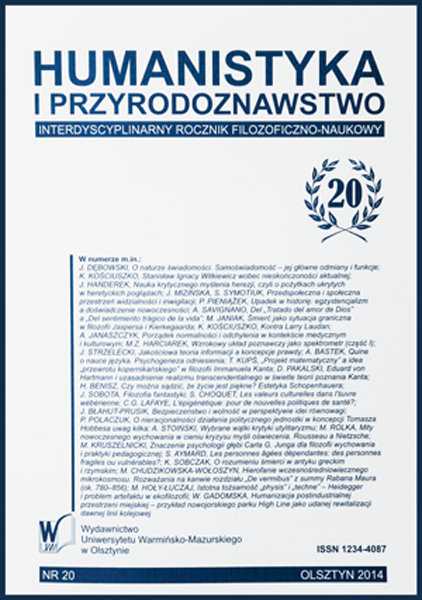
W niniejszym szkicu autorka spróbuje przybliżyć fragment wczesnośredniowiecznej debaty nad porządkiem wszechświata, u której podstaw leżał szeroko pojęty symbolizm chrześcijański. Stanie się to możliwe dzięki wybranym przyrodniczo-teologicznym refleksjom karolińskiego erudyty Rabana Maura zawartym w obszernej summie o świecie - De universo. Analizie zostanie poddana VIII księga wspomnianego dzieła, swoistego rodzaju bestiariusz. Czwarty rozdział tej księgi, zatytułowany De vermibus - O robakach, otwiera przed czytelnikiem świat owadów, pierścienic, mięczaków, a także odstręczających ludzkich pasożytów, których istnienie oraz bytowanie miały - zdaniem Maura - nieoceniony wkład w zrozumienie tajemnic niewidzialnego Boga. Królestwo przyrody kryło w sobie moc alegorycznych kierunkowskazów. Ich umiejętne zinterpretowanie mogło otworzyć drogę do zbawienia. W każdej z ksiąg De universo odnajdujemy harmonijne zespolenie elementów z zakresu historii świata, człowieka i zbawienia. Maur z naukowym zacięciem i niepodważalną wiarą we współzależność świata doczesnego oraz niebiańskiego komentował i interpretował wszelkie zjawiska i mechanizmy z otaczającej go rzeczywistości. Wszechobecne dzieło stworzenia przybliżało go do samego Stwórcy. Przyroda stanowiła niekończące się źródło hierofanii. Ukryte w niej kody, klucze i metafory pozwalała rozszyfrować Biblia, a także rozum kierowany przez wiarę. W ten sposób Maur - tak jak i wielu innych współczesnych mu uczonych - docierał do satysfakcjonującego poczucia poznania i zrozumienia świata. Zbliżenia do sfery sacrum. Poprzez widzialne obrazy, dźwięki i nazwy we wszystkich wymiarach człowieczego bytu możliwe stawało się poszukiwanie i - w efekcie - odkrywanie Boga. Szukajmy więc „cienia prawdy i życia”1 w świecie krwiożerczych pijawek i pająków tkaczy. Wszakże prawdziwym „filozofem - w opinii Maura - jest ten, kto posiada wiedzę rzeczy boskich i ludzkich”2.
More...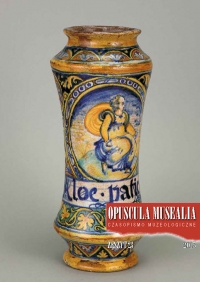
In the article, a 19th c. device for manufacturing candles, exhibited in the Kraków Museum of Pharmacy, is described. The article discusses also the tradition of producing candles and wax for seals by European apothecaries in the period from 13th to 19th century
More...
The Museum of Spanish Pharmacy is a university museum with more than sixty-five years of history located in the Faculty of Pharmacy at the Complutense University of Madrid. It forms part of the university’s extensive historic-artistic and scientific technical heritage, and is one of the most important museums in terms of age, history and quality of collections housed. Although it was primarily created for teaching purposes, it now also offers guided tours to a diverse public searching for cultural enrichment. It receives more than four thousand visitors a year, who learn about the history of the pharmaceutical profession, the preparation of medicines, and the decorative arts, an area that has always gone hand in hand with the pharmaceutical trade. In spite of the limitations imposed by a low budget and a small staff, it is an active museum which continues to enlarge, conserve and restore its collection, while becoming ever more widely known through an ongoing participation in temporary exhibitions. The museum is approximately seven hundred square meters in size and is housed on two floors, as well as having an additional space in two other buildings that make up the present faculty. The five original pharmacies, two dating back to the 18th century and three from the 19th century, are without a doubt the most striking exhibits, and are also supplemented by recreations of an Arabic pharmacy, an iatrochemistry laboratory, and a replica of a 17th century hospital pharmacy. The rest of the collection is made up of exhibits representing very different techniques and uses: paintings, sculptures and numerous display cabinets with 18th century medical material, pharmaceutical advertising, amulets, scientific instruments, mortars, apothecarial tools for preparing pharmaceutical compounds, ceramic and porcelain pharmaceutical jars, flasks and other glass utensils, wooden boxes, medicines, medicine chests and travel pharmacies, and much more, all totalling more than nine thousand objects that illustrate how medicines have been prepared, stored and dispensed throughout history.
More...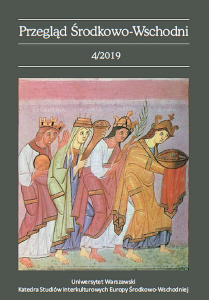
The Russian Revolution and the fall of the Romanov dynasty contributed to the revitalization of the national movements in the former empire. In the March 25-27, 1917 in Minsk the Belarusian Congress of Parties and Organizations on which the Belarusian National Committee, headed by Roman Skirmunt (1868–1939) was created. Its main task was to organize the mass of the Belarusian national movement and to achieve the autonomy of the Belarus within the framework of a federal and democratic Russia. However, the visit of the Belarusian delegation to Petrograd in April, 1917 and the negotiations with the Provisional Government was failed. The interim government is still regarded Belarus as the “North-West territory” of the Russia. The only argument that could change its position, was massive national movement in Belarus and the creation of its own military forces. However, in the spring of 1917 Belarusians had no such an argument.
More...
The article discusses issues related to information and publishing activity of official institutions of the Belarusian People’s Republic – the Council and government and other political and cultural organizations associated with BPR in 1918–1925. The survey covers the period of activity of the BPR institutions both on the territory of Belarus and on emigration.
More...
The article tells the story of a participant in the anti-Bolshevik guerrilla movement of Uladzimir Ksianievič (pseudonym Ataman Hrač). He is a man not known and known until recently in historiography. In 1924, Ataman Hrač crossed the Polish-Soviet border and made it to Soviet Belarus, where he was soon arrested and convicted. Files regarding the investigation are kept in the Archive of the State Security Committee of the Republic of Belarus. Based on court fi les, the author of a given publication reproduces the subsequent stages of the fate of the guerrilla. The tragic fate of this activist was shown against the background of political events that took place in the region at that time.
More...
A number of political trends existed in the Belarusian national movement in Western Belarus in Poland in the interwar period. One such political trend was the “Belarusian sanation” (“Luckievič-Astroŭski group”), which arose after the Polish authorities dissolved the Belarusian Peasants Workers Hramada. Followers of the “Belarusian sanation” proposed to abandon the radical political struggle and begin a search for a compromise with the Polish authorities to preserve the existing Belarusian cultural and educational organizations. Based on these ideas, such organizations as Centrasajuz and the Belarusian Education’s Association were created. At the same time, the “Belarusian sanation” was quite critical of polonization policy and acted as a “constructive opposition” towards the Polish authorities. The reason for the decline of the “Belarusian sanation” was internal disagreement among the leaders of this political direction.
More...
The article is an attempt to study the problem of time discipline in the periodical press discourse of interwar Belarusian Christian Democracy. This discourse was an important element in shaping of an image of moral community comprising politically, socially and economically active Belarusians. However, not only political but also sociocultural factors to a large extent determined that the eff ect of this discourse on Belarusian village was rather limited. The article proposes a typology of social time which characterizes the attitudes toward time of Belarusian Christian Democracy and other political movements in West Belarus.
More...
Many Belarusian activists in Poland in the interwar period treated Protestantism as a “Belarusian national church.” This article tells about the linguistic and national situation inside the Protestant church. Protestant publications in the Belarusian language are analyzed. The article also deals with important fi gures of the Belarusian evangelical movement, which contributed to the national and spiritual revival of the Belarusians. They are shepherds, Lukaš Dziеkuć-Maliej and Jan Piatroŭski. The authors came to the conclusion that during the interwar period national and evangelical processes took place simultaneously in the territories of Western Belarus. Some representatives of the Protestant movement sought to make Protestantism the national church of the Belarusians. The Belarusian language was used in pastoral activities, and evangelical activity was identifi ed with activities in favor of Belarusian culture and language. Some of the Belarusian intelligentsia treated Protestantism as a church that does not divide the Belarusians into “Poles” and “Russians”, as was often the case with Catholicism and the Orthodox Church. In the end, these plans were not implemented. Among the believers of the Protestant movement, there were not enough people who sympathized with the Belarusian cause. In addition, a significant part of the Belarusian intelligentsia adhered to atheistic views. The links between Protestantism and the Belarusian movement are still poorly understood.
More...
As a result of the German army’s off ensive in the summer of 1941, Latvia was occupied by the Third Reich. The national structure of Latvia was characterized by diversity. Belarusians were among the most numerous minority groups. The German authorities, using the principle of „divide and rule”, were willing to give Belarusians a certain cultural and educational autonomy. The local Belarusian intelligentsia saw in this a chance to strengthen their infl uence in Latgale, which was treated as part of the so-called Belarusian ethnographic area. In 1941, the Belarusian National Committee was established in Riga and Daugavpils (from the spring of 1942 – the Belarusian Association). The main activity of this organization was social and cultural-educational activity among the residents of Latvia. There were choirs and artistic groups, publishing and cultural-educational activities. In addition, attempts were made to introduce the Belarusian language to Catholic and Orthodox churches. The aim was to fi ll the civil administration and local governments at the lower and middle level in Latgale with people of Belarusian nationality. The organization of education in the mother language was started. Belarusian activism has caused concern among many Latvians, because the leaders of the Latvian Belarusians counted on the possibility of joining Latgale in the future to Belarus. For a number of reasons, the „Belarusian action” in Latvia under German occupation was not a major success.
More...
Volksdeutsche, i.e. Germans who lived outside the Reich occupied a key place in the plans of the Nazi leadership for the organization of the eastern occupied territories. They were the main human reserve for the Germanization of Poland and some areas of the USSR. The primary task for the German authorities was to bring the multicultural and multilingual contingent of Volksdeutsche to the linguistic and ideological standards inherent in the population of the “old” Reich. The level of German language proficiency played an important role in determining the status of Volksdeutsche in the new social situation for them, and their bilingualism made them an important link in the mediation between the occupation authorities and the local population of the occupied territories.
More...
The article presents the complex history of the Uniates in Lipsk. The author also shows inter-faith relations in this area over the centuries. Shows the genesis of shaping the cultural and religious mosaic. Analyzes the state of knowledge of the region’s inhabitants about the past. The author writes about how the multi-ethnic and multicultural area gradually turned into a unifi ed religious and cultural area.
More...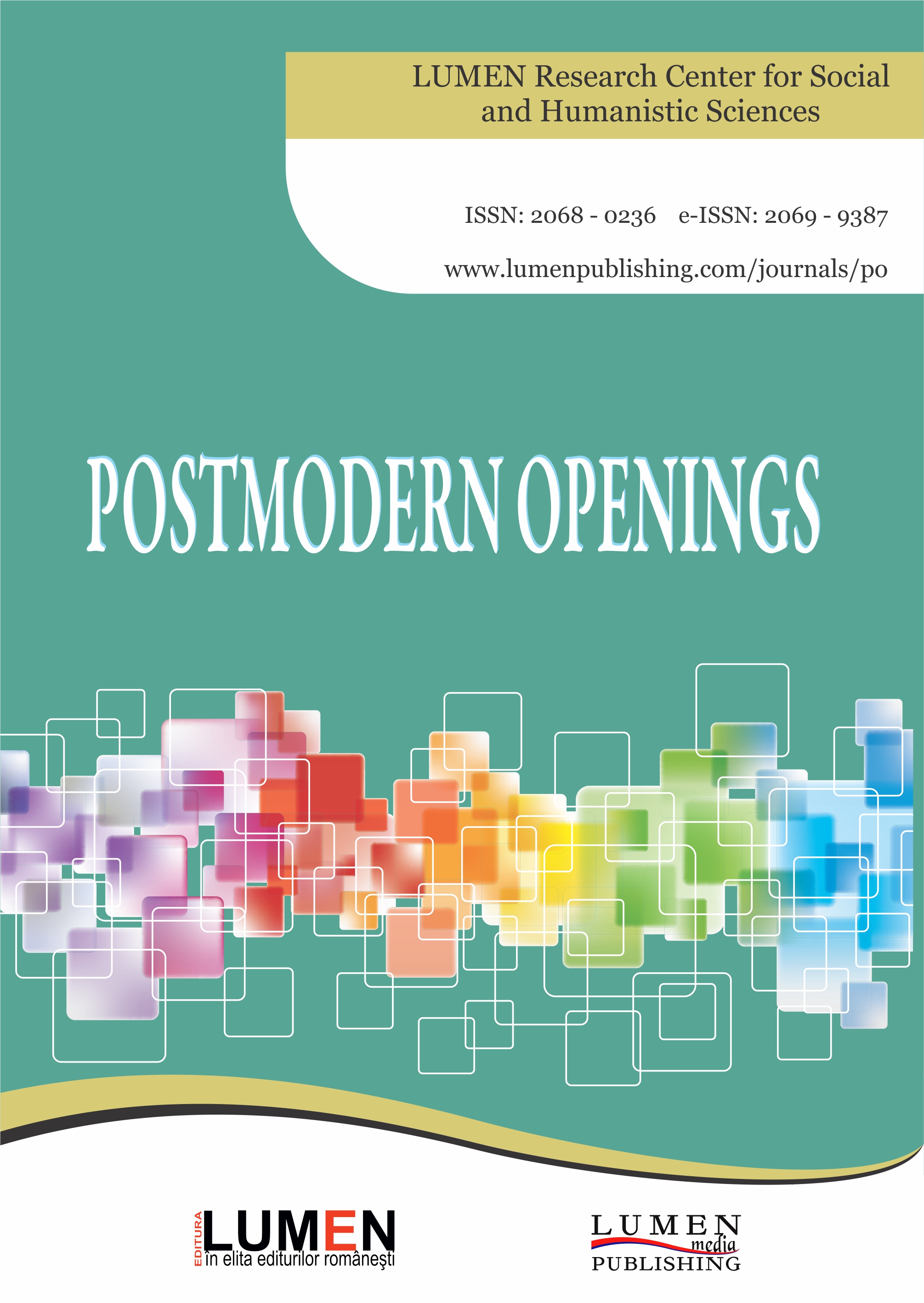
Migration is a phenomenon that is present in every country. For some countries, emigration is more typical, for another immigration. In the past, Slovakia was typically the emigration. Recently, however, more and more immigrants arrive in Slovakia, especially in terms of looking for work.The aim of the study was to explore how foreigners perceive their integration process and the provision of social services in Slovakia. We particularly focused what social services they used during their integration process, How do they assess the approach of the staff of the institutions that provide social services.The survey sample was composed of immigrants living in Slovakia for at least one year. We used a snowball technique to select the participants. The survey sample consisted of 25 people from different countries of origin.Qualitative research strategy was used. Semi-structured interviews with immigrants living in Slovakia at least one year were conducted. The data were analyzed using the program Atlas.Ti.Findings describe how immigrants perceive their integration process and how they perceive the provision of social services were mainly positive with a few of negative experiences.This paper was prepared as a part of the project The Identity of Social Work in the Context of Slovakia [APVV-0524-12] funded by the Slovak Research and Development Agency.
More...